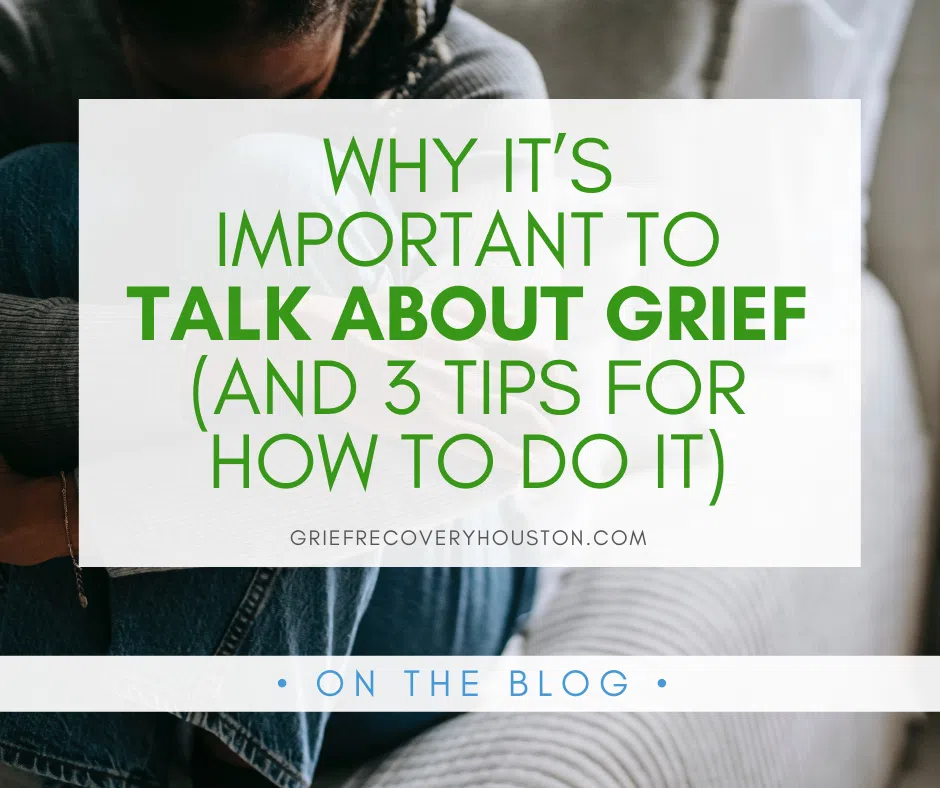- Unpacking Grief and Disability - July 8, 2024
- Breaking the Stigma: 5 Blogs to Better Understand Suicide - May 21, 2024
- 4 Tips for Better Sleep Hygiene - March 4, 2024
The holiday season can be particularly challenging for people who are missing loved ones. There’s nothing that feels good about sitting down to a holiday dinner with loved ones, thinking the entire time about who’s missing from the table. This is why reaching out to a grief counselor who can help you get through the next few months can be helpful. So, how to find a good grief counselor? You need one who you can trust, as well as someone who is qualified to help you work through your grief and sense of loss.
Know the Difference between the Various Types of Professionals
 The first step in how to find a good grief counselor involves understanding what the professional designations are. You’ll see people labeling themselves as “grief counselors,” “grief therapists,” and even “grief coaches.” While all might be able to help you with your holiday grief, you do need to keep in mind that the people who are therapists and counselors will have more professional credentials. This means that they have plenty of training in both psychology (textbook-based learning), as well as in working with people in the field. A couch, on the other hand, might not have these types of credentials, although they should have some training.
The first step in how to find a good grief counselor involves understanding what the professional designations are. You’ll see people labeling themselves as “grief counselors,” “grief therapists,” and even “grief coaches.” While all might be able to help you with your holiday grief, you do need to keep in mind that the people who are therapists and counselors will have more professional credentials. This means that they have plenty of training in both psychology (textbook-based learning), as well as in working with people in the field. A couch, on the other hand, might not have these types of credentials, although they should have some training.
What it really comes down to is whether or not you think that the person can help you with your grief. If you feel comfortable talking to them and they are helping you, then the credentials and titles don’t really matter as much. With that said, it’s up to you whether or not you want to see either a grief counselor or a grief therapist. Those two titles are practically interchangeable.
What About Group Counseling?
Although this doesn’t seem to answer the question: how to find a good grief counselor, it is related, as it’s a type of therapy that you’ll encounter during the search process. There are plenty of grief counseling groups out there that may be able to help you. These groups are led by a professional grief counselor or therapist. In fact, once you choose an individual professional to help you, they may recommend that you attend some group therapy sessions as well as see them separately.
The counselor that you’re working with might be the person who leads the session, which helps because they know you and your grief. All of the people in attendance at the group session might be their clients as well. The only downside to these group counseling sessions is that it can be tricky to get anyone on one help. You might also be socially anxious or an introvert, which makes speaking up in front of the group very tough to do. However, these group sessions are known to help, so if you’re comfortable attending them, then feel free to do so. You’d be surprised at how it helps to know that you’re not alone – and not the only one in this same situation. It’s good to know that other people are dealing with their grief around the holidays, too.

Go Over Your Needs
 You’re probably wondering how to find a good grief counselor who fits your needs. The first part of this involves determining exactly what those needs are. Do you want to find someone that you can speak with in person? What times of the day are you available to meet with the counselor? How deep does your loss go? Do you prefer group sessions over individual ones? Or would you rather do a mix of both? What type of credentials do you want your grief counselor to have? Are you prepared to ask your potential grief counselor a series of questions? What do you want to learn from this process? What’s your main goal (besides dealing with your grief – how do you put that into words?) How long do you think it will take before you begin to feel more like yourself again?
You’re probably wondering how to find a good grief counselor who fits your needs. The first part of this involves determining exactly what those needs are. Do you want to find someone that you can speak with in person? What times of the day are you available to meet with the counselor? How deep does your loss go? Do you prefer group sessions over individual ones? Or would you rather do a mix of both? What type of credentials do you want your grief counselor to have? Are you prepared to ask your potential grief counselor a series of questions? What do you want to learn from this process? What’s your main goal (besides dealing with your grief – how do you put that into words?) How long do you think it will take before you begin to feel more like yourself again?
That last question is tricky because you really can’t rush the process. Grief is not something that you can deal with overnight. Many people like to set some sort of goals for themselves, and as long as they are flexible about this, then that might just work for you. Answer all of these questions honestly. They are just one of the steps that you need to take in order to respond to the question of how to find a good grief counselor.
How to Find a Good Grief Counselor near You
Finally, the last step to go through when searching for an answer to the question of how to find a good grief counselor near you involves asking your potential counselors a series of questions. Some of these include: how long have you been doing this job? What are your academic credentials? What is your general approach? How much do you charge? What types of insurance do you accept? When are you available to meet with me? Do you have time to take on new patients? How will I be able to tell that your therapy or counseling is helping me with my grief?
Are there are symptoms of grief that you’re equipped to deal with? Are there any that you’re not able to help with? Do you prefer to do group counseling, individual counseling, or a mix of both? How do you help people work through their grief? Are there any types of people who shouldn’t go to you for help? Their honesty will only help you choose the best grief counselor.
Are you dealing with the loss of a loved one this holiday season? Have you been wondering how to find a good grief counselor? Look no further. Grief Recovery Center in Houston, TX can help. You can reach us at (832) 413-2410 or by filling out the form on our website. Don’t let your grief rob you of your usual holiday enjoyment. Take the time to speak with one of our licensed therapists today.






No comments yet.